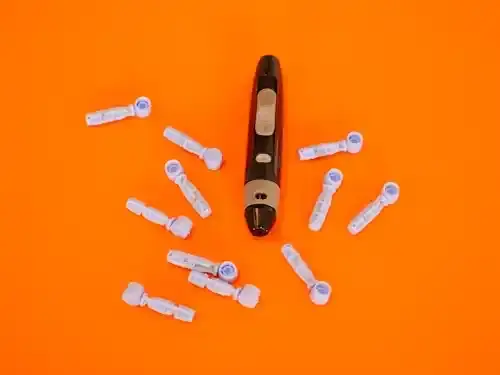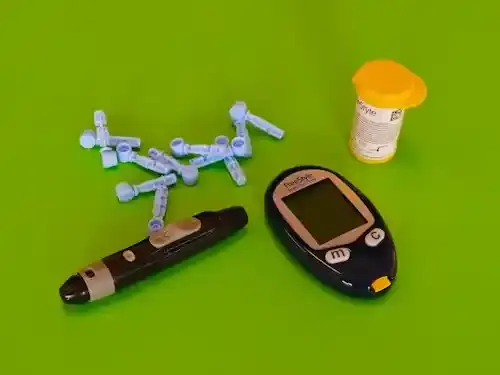Processed foods: Are you at risk of diabetes?
More than 460 million people globally suffer from diabetes, 462 million of whom suffer from type II diabetes. The numbers are very alarming, and when looking at our Arab region, we will find that 6 of the 10 countries with the most diabetes globally are Arab countries. When Oman, Kuwait, Bahrain, Saudi Arabia, Lebanon and the United Arab Emirates are on that list, we realize how dangerous it is to raise awareness of the disease that threatens our region.
Show key points
- Over 460 million people worldwide suffer from diabetes, with type II diabetes accounting for the overwhelming majority of cases.
- Six out of the top ten countries with the highest diabetes rates are in the Arab world, highlighting a critical regional health concern.
- The article clarifies that diabetes is a chronic condition caused by insufficient insulin production or the body's inability to use insulin effectively.
- ADVERTISEMENT
- There are different types of diabetes, including Type I, Type II, secondary diabetes, and gestational diabetes, each with different causes and management strategies.
- Symptoms such as blurred vision, excessive thirst, frequent urination, and fatigue can signal the onset of diabetes and warrant medical consultation.
- There is a strong association between the consumption of ultra-processed foods and an increased risk of developing type II diabetes.
- Reducing intake of fast and pre-prepared foods while opting for healthier, less processed alternatives can significantly lower diabetes risk.
There are many misconceptions in our Arab region regarding diabetes, and this article may not aim to know them, but it will put your hand on some facts that may help you know what diabetes is and how to prevent it by avoiding certain meals capable of increasing the chances of diabetes.
Recommend
There is a close link between what we eat and diabetes, so it's important to explain this relationship and help you understand it. This article is more concerned with the relationship between ultra-processed foods and diabetes.
What is diabetes?

In simple words, diabetes is a chronic disease (any permanent or long-term condition) that occurs when your pancreas can't produce enough insulin or when your body can't use insulin.
But what is the role of insulin in your body? Insulin is a hormone that helps your body absorb sugar. When you can't play this role, your blood sugar concentration increases, which causes diabetes.
The most famous types of diabetes are:
Type I: It is the one that you develop when the pancreas is unable to produce insulin. It is considered an immune disease and affects children and young people under the age of 20, so it is sometimes called childhood diabetes and we cannot control it and it comes without precursors. Type I diabetics need insulin for life.
Type II: It occurs in one of the two, either when the pancreas secretes an insufficient amount of insulin or when your body cannot use insulin effectively. This type occurs mostly in people who are obese or those who do not do any physical activity or when eating a lot of unhealthy foods and is the most common.
There is no cure for diabetes but in the case of type II if detected early it can be controlled by losing weight, organizing a proper diet and exercising. But if these factors are not enough to control high sugar levels, then the patient is advised to take diabetes medications or insulin therapy.
Secondary diabetes: It is a sugar that affects individuals as a result of other diseases or medications that are taken continuously or for long periods, such as cortisone, and these factors cause an increase in sugar in the body, so we can consider it a symptom of another disease or factor and it can be dealt with quickly by treating the cause.
Gestational diabetes: occurs when blood sugar rises during pregnancy between weeks 24 and 28 of pregnancy. In about 50% of these cases, the problem ends after birth.
Symptoms of diabetes:

All diseases have symptoms that distinguish them, and many of them are visible and tangible, and knowing the symptoms helps early attention and speed of response to the pathological condition, but what are the symptoms of diabetes phenomenon that you should pay attention to?
Vision is affected and blurred
Extreme thirst and hunger
Frequent skin infections
Weight loss
Frequent urination
Pain and numbness of the hands and feet
Heat in the feet
Delayed wound healing
Fatigue, lethargy and stress
We recommend that you consult a specialist doctor when you notice these or some of these symptoms.
The relationship between processed foods and diabetes
Proper and healthy food is one of the most important factors that may protect you from developing diabetes or help control the disease if you already have diabetes. It is no secret to many that processed foods are unhealthy but considered the most dangerous in terms of diabetes, let's explain it simply.
What are the processed foods:

Processed or processed foods are any food that has changed its original state or fresh foods that we convert to another food using industrial methods. The treatment is done by adding sugar, salt, yeast or saturated fat for a better taste or for the purpose of lasting longer. Easy-to-identify examples are burgers, sausages, nuggets, soft drinks, packaged potato chips, ice cream, and other processed products. There are also some foods that you may not realize fall under that list but are also considered processed such as bread, breakfast cereals, frozen vegetables, various sauces, cheeses, packaged fish such as tuna and other products.
In simple words, everything that is made of food is processed food. You can realize the magnitude of the risk when you realize that today's diet is more than 50% of it from processed food products. The most dangerous are ultra-processed foods such as breakfast cereals, ready meals, processed meats, sweets and salty snacks. Looking at the list of ingredients on the product, you can check that the product is superprocessed and that there are 5 or more ingredients from unnatural ingredients.
Recent studies have proven that there is a link between highly processed foods and the incidence of serious diseases such as obesity and type II diabetes as well as death from cardiovascular diseases. Information was collected from about 10 million people from different countries of the world. Another study showed that every 10 percent increase in ultra-processed foods was offset by a 17 percent increase in the risk of type 2 diabetes. You can reduce your risk by eating less processed foods and reducing the intake of fast food or pre-prepared meals that are only heated.








